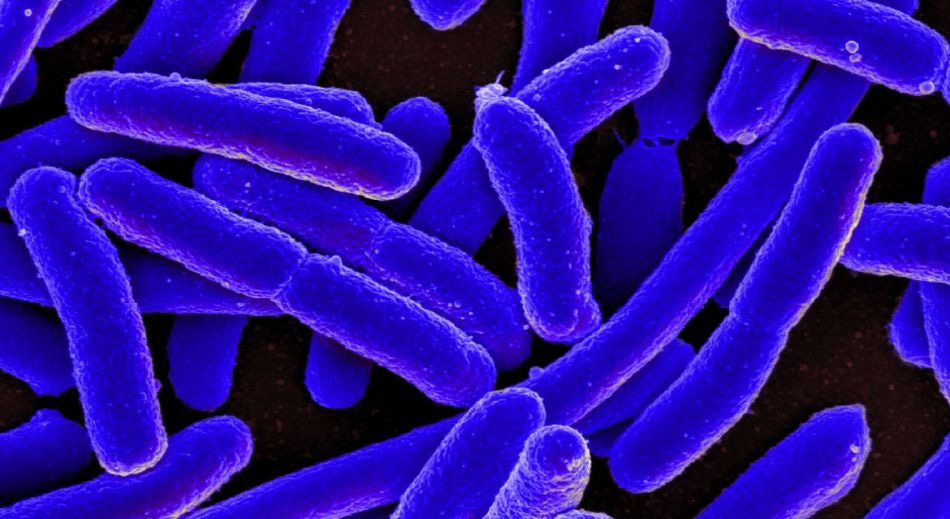Jan 9 2018
Researchers at the University of Dundee have found out that E. coli bacteria could possess the key to an efficient technique of trapping and storing or recycling carbon dioxide (CO2).
 E.coli bacteria are shown to be excellent at CO2 conversion (Photo credit: NIAID (E. coli Bacteria) [CC BY 2.0 (http://creativecommons.org/licenses/by/2.0)] / Wikimedia Commons
E.coli bacteria are shown to be excellent at CO2 conversion (Photo credit: NIAID (E. coli Bacteria) [CC BY 2.0 (http://creativecommons.org/licenses/by/2.0)] / Wikimedia Commons
Cutting CO2 emissions to decelerate and even reverse global warming has been theorized as mankind’s paramount challenge. It is a goal that is subject to extensive political and societal obstacles, but it also remains a technological test.
Novel ways of capturing and storing CO2 will be necessary. At present, typically harmless gut bacteria have been revealed to possess the ability to play a decisive role.
Professor Frank Sargent and colleagues at the University of Dundee’s School of Life Sciences, working with local industry partners Sasol UK and Ingenza Ltd, have formulated a process that enables the E. coli bacterium to act as a highly efficient carbon capture device.
Professor Sargent said, “Reducing carbon dioxide emissions will require a basket of different solutions and nature offers some exciting options. Microscopic, single-celled bacteria are used to living in extreme environments and often perform chemical reactions that plants and animals cannot do.
“For example, the E. coli bacterium can grow in the complete absence of oxygen. When it does this it makes a special metal-containing enzyme, called ‘FHL’, which can interconvert gaseous carbon dioxide with liquid formic acid. This could provide an opportunity to capture carbon dioxide into a manageable product that is easily stored, controlled or even used to make other things. The trouble is, the normal conversion process is slow and sometime unreliable.
“What we have done is develop a process that enables the E. coli bacterium to operate as a very efficient biological carbon capture device. When the bacteria containing the FHL enzyme are placed under pressurised carbon dioxide and hydrogen gas mixtures – up to 10 atmospheres of pressure – then 100 percent conversion of the carbon dioxide to formic acid is observed. The reaction happens quickly, over a few hours, and at ambient temperatures.
“This could be an important breakthrough in biotechnology. It should be possible to optimise the system still further and finally develop a `microbial cell factory’ that could be used to mop up carbon dioxide from many different types of industry.
“Not all bacteria are bad. Some might even save the planet.”
Not only capturing CO2 but storing or recycling it is also a key issue. There is millions of tons of CO2 being pumped into the atmosphere annually. Just in the UK, the net emission of CO2 in 2015 was 404 million tons. A major question arises as to where to store it all if its captured, with recent suggestions including pumping it underground into vacant oil and gas fields.
“The E. coli solution we have found isn’t only attractive as a carbon capture technology, it converts it into a liquid that is stable and comparatively easily stored,” said Professor Sargent.
“Formic acid also has industrial uses, from a preservative and antibacterial agent in livestock feed, a coagulant in the production of rubber, and, in salt form, a de-icer for airport runways. It could also be potentially recycled into biological processes that produce CO2, forming a virtuous loop.”
The results of the research can be found in the journal Current Biology.
The research received funding from the Biotechnology and Biological Sciences Research Council (BBSRC).